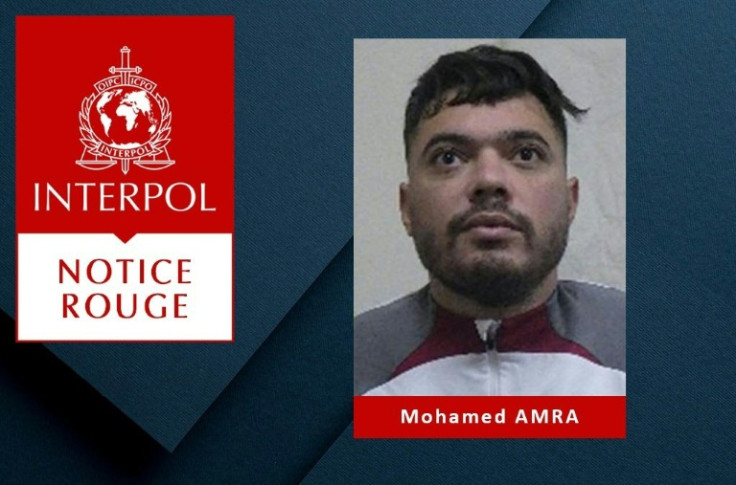
A motorway attack that claimed the lives of two prison officers in France this week marks a new level of violence by the latest generation of drug traffickers, police officers and experts told AFP.
On Tuesday, gunmen attacked a prison van at a motorway toll in northern France, killing two prison officers and freeing a convict linked to gangland drug killings.
The officers guarding Mohamed Amra, 30, were armed with pistols while the assailants attacked with military-grade assault weapons.
The killings and dramatic getaway by the perpetrators, who used a stolen Peugeot to ram the prison van, shocked France.
"I had never seen anything like that," veteran police officer Jean-Francois Maugard told AFP.
The former divisional commander spent nearly 25 years in the anti-organised crime squad of the Paris judicial police, tracking down the likes of Italian bank robber Antonio Ferrara and Redoine Faid, a career criminal nicknamed the "getaway king."
"It's not even banditry, because banditry isn't that. In fact, we're hearing from some big crooks who don't understand (this) at all," the now-retired police officer said.
According to footage from surveillance cameras at the toll gate, the doors of the car were flung open and several gunmen dressed in black emerged. A firefight ensued and a man appeared to be guided away from the van by the gunmen.
The prison officers who died were the first to be killed in the line of duty since 1992.
"A very worrying stage was reached, with a full-scale attack with almost an assault column, weapons of war and no chance given to the prison officers," said Gregory Joron, general secretary of the UN1TE police union.
The millions made from drug imports "generate a huge amount of resources, which are also used to militarise trafficking", he said.
On Wednesday, Interior Minister Gerald Darmanin condemned the "barbarity" of the attack, saying it was the latest example of the "savagery that affects our society".
The attack in Incarville was reminiscent of the armoured car robberies of cash transportation companies, which have become rare since the end of the 2000s.
In those cases, "in general, they shot to stun, there was this desire not to kill," said Frederic Ploquin, author of numerous books on banditry.
"In this case, not only is there no concern to spare lives, but you get the impression that there is even a desire to kill everyone, like in a video game."
Amra, reportedly known as "La Mouche" (The Fly), has a long history of convictions for violent crimes that started when he was only 15.
"He is a pure product of the start-up that drug trafficking represents in France today. You become a gang leader at the age of 30, so you haven't necessarily had the time to think things through and mature," said Ploquin.
He drew parallels with the leaders of the Yoda and DZ Mafia drug gangs that have been battling for control of deal points in the southern city of Marseille.
"These guys will dare to do anything," a veteran investigator specialising in organised crime said on condition of anonymity.
"We have a generation that grew up with drugs and extreme violence."
The incident came on the same day as the French Senate published a damning report warning that government measures had been unable to prevent the flourishing of the narcotics industry in France.
A Senate committee of enquiry pointed to the "uberisation" of the drugs trade -- a reference to the easy availability of the product -- and an upsurge in violence linked to competition between criminal gangs.
Maugard suggested that the assault might have been staged by "the escapee's team of dealers" who had come to rescue "the network leader who keeps them alive".
"They are reacting in a clannish way. There is no control or filter at all," he said.
According to the veteran investigator, the assault was "a sign of the considerable financial power of drug traffickers, who are capable of putting money on the table to pay a team."
That realm was previously the preserve of South American gangs, said Ploquin.
"From the moment you outsource death as if you were outsourcing a delivery, you have acted on the premise that death is a product like any other".









